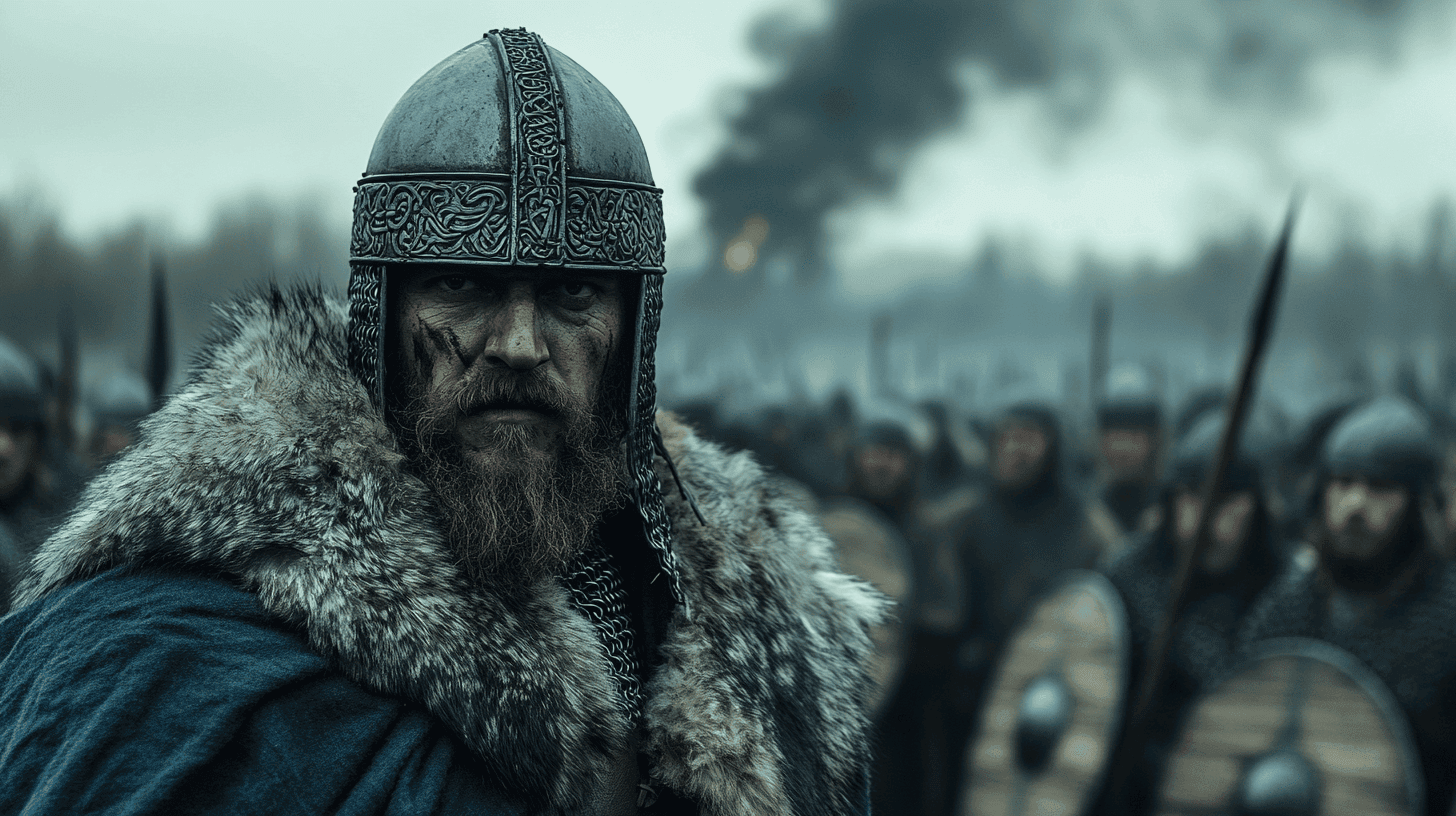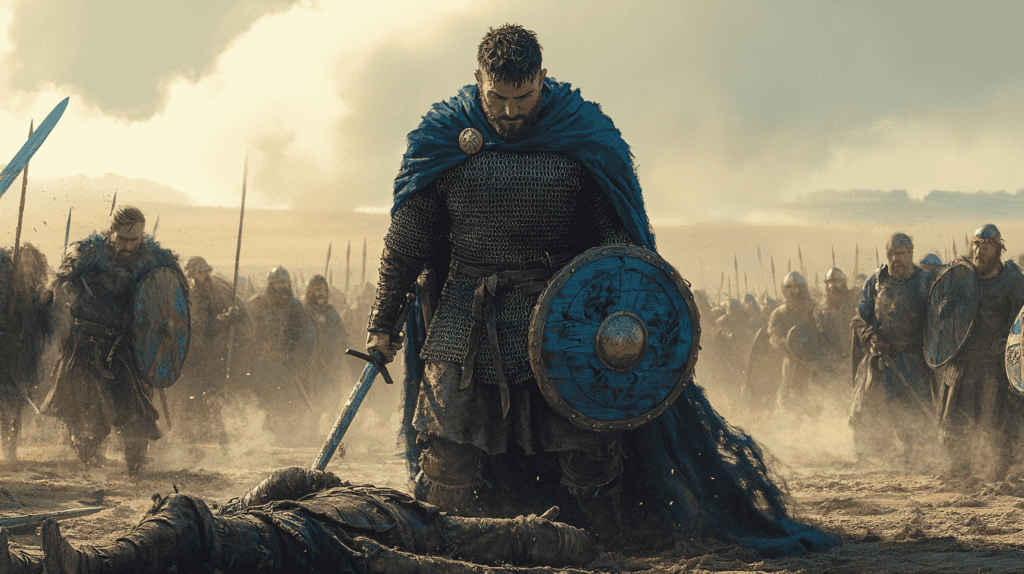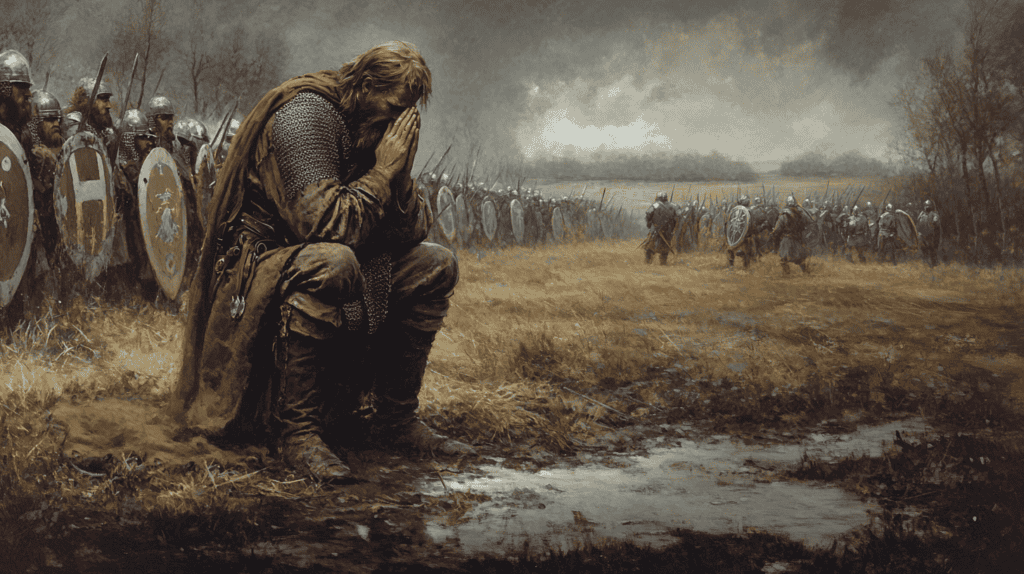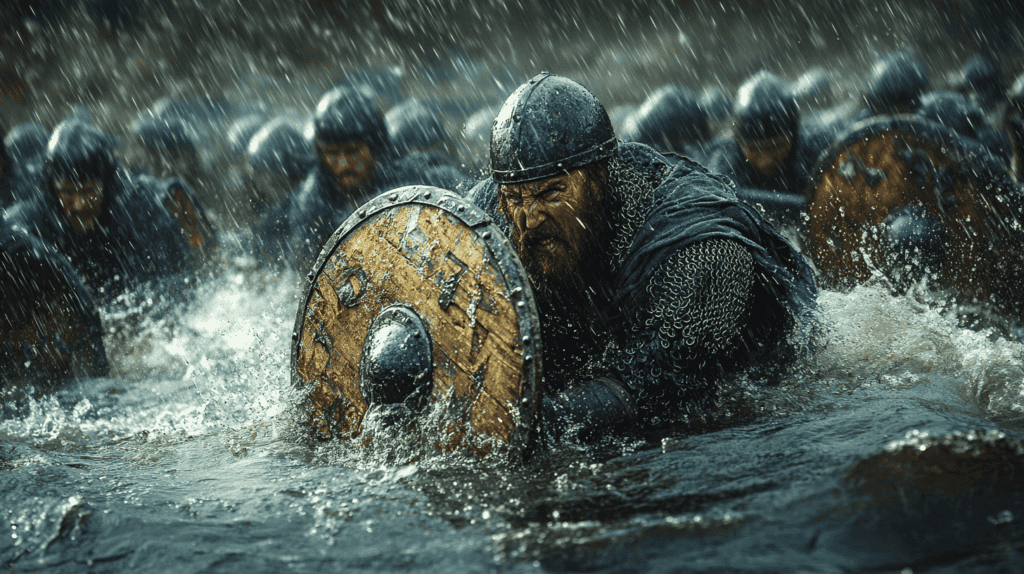
In the tumultuous landscape of 7th century Anglo-Saxon England, few figures loom as large as Penda, the pagan king of Mercia. Rising from relative obscurity, Penda transformed Mercia from a minor kingdom into a dominant power through a series of military campaigns and strategic alliances. His reign, marked by near-constant warfare, would reshape the political landscape of England and ultimately lead to a pivotal moment in the country’s religious history.
The Rise of a Warrior King
Penda’s ascension to the Mercian throne around 626 AD marked the beginning of a new era for the kingdom. Born around 606 AD, Penda grew up in the shadow of his father, King Pybba, in a Mercia that was still a relatively minor player in the complex web of Anglo-Saxon politics. However, the young prince was destined to change this dramatically.
The Anglo-Saxon Chronicle records that shortly after becoming king, Penda engaged in his first significant military action. In 628 AD, he clashed with the West Saxon kings Cynegils and Cwichelm at Cirencester. This battle, which ended in some form of agreement, was a harbinger of Penda’s future military career and his ambitions for Mercian expansion.

The Battle of Hatfield Chase: A Turning Point
Penda’s rise to prominence on the national stage came in 633 AD with the Battle of Hatfield Chase. Allied with Cadwallon ap Cadfan of Gwynedd, Penda defeated and killed Edwin of Northumbria, the most powerful king in Britain at the time. This victory was a seismic event in Anglo-Saxon politics, effectively ending Northumbrian dominance and paving the way for Mercian ascendancy.
The alliance with Cadwallon is noteworthy, as it demonstrates Penda’s willingness to work with the Welsh kingdoms against common enemies. This pragmatic approach to alliances, regardless of ethnic or religious differences, would become a hallmark of Penda’s reign.

Consolidating Power: The East Anglian Campaign
Following his success against Northumbria, Penda turned his attention eastward. Sometime between 635 and 641 AD, he launched a campaign against the East Angles. In a decisive battle, Penda not only defeated the East Anglian forces but also killed their king, Egric. While one of his sons, Eadfrith, was captured by Penda and was later killed despite Penda’s swearing an oath that he would be spared.
This victory significantly expanded Mercian influence and demonstrated Penda’s growing power. It also highlighted the brutal reality of Anglo-Saxon warfare, where defeated kings often paid with their lives. The Anglo-Saxon Chronicle says that following the victory at Hatfield Chase, Cadwallon and Penda went on to ravage “the whole land” of the Northumbrians.

The Battle of Maserfield: Penda’s Greatest Triumph
The zenith of Penda’s military career came on August 5, 642 AD, at the Battle of Maserfield. Here, Penda faced off against Oswald of Northumbria, who had managed to reunify Northumbria and restore some of its former power following the defeat at Hatfield Chase.
The battle was a resounding victory for Penda. The Venerable Bede relates that Oswald prayed for the souls of his soldiers when he saw that he was about to die. Oswald’s body was cut into pieces, and his head and arms mounted on poles; the parts were retrieved in the next year by his brother and successor Oswiu. Since Penda was a pagan and Oswald was Christian, the latter was subsequently venerated as a martyr and saint.
The Battle of Maserfield cemented Penda’s position as the most powerful king in Britain. While Penda, steadfastly pagan, became increasingly seen as a threat to the spread of Christianity.

Expanding Mercian Influence
In the years following Maserfield, Penda worked to consolidate and expand Mercian power. Around 645 AD, he turned his attention southward, launching a campaign against Wessex. He successfully drove the West Saxon king into exile and effectively ruled the territory by proxy for three years.
Penda’s influence continued to grow. In 653 AD, he established his son as a sub-king over the Midlands territories that bordered his own Mercian holdings and the previously conquered kingdom of the Hwicce. This move not only expanded Mercian territory but also demonstrated Penda’s efforts to create a dynasty that could maintain Mercian power after his death.
The Final Campaign: The Battle of the Winwaed
Despite his many successes, Penda’s reign was to end in defeat. In 655 AD, at around 50 years of age, Penda launched what would be his final campaign. Leading a massive army, which included forces from East Anglia and Wales, Penda marched north against Oswiu of Bernicia, Oswald’s successor.
The campaign initially seemed successful. Bede records that Penda’s forces ravaged Bernicia, forcing Oswiu to retreat to his northernmost stronghold at Stirling. Oswiu, desperate to avoid battle, attempted to buy Penda off with a vast treasure. According to some accounts, Penda accepted this treasure but distributed it among his allies before continuing his advance.
On November 15, 655 AD, the two armies met at the Battle of the Winwaed. Despite having a significantly larger force, estimated at around 2,200 men compared to Oswiu’s 800, Penda suffered a catastrophic defeat. The battle, fought near a river in heavy rains, turned into a rout. Bede reports that more of Penda’s men drowned in the flooded river during their flight than fell to the sword.

Penda himself was among the fallen, along with nearly all the allied commanders, including King Aethelhere of East Anglia. With Penda’s death, the last great pagan king of Anglo-Saxon England was gone, and the dominance of Mercia, which he had worked so hard to establish, was shattered.
Legacy and Impact
Penda’s reign, while relatively short at about 30 years, had a profound impact on 7th century England. Through his military campaigns, he fundamentally altered the balance of power among the Anglo-Saxon kingdoms, breaking Northumbrian dominance and establishing Mercia as a major player in English politics.
His consistent paganism in the face of spreading Christianity also made him a significant figure in the religious history of England. Penda’s defeat at the Winwaed is often seen as a turning point, marking the effective end of Anglo-Saxon paganism as a political force. Following his death, Mercia converted to Christianity, and all subsequent Mercian kings, including Penda’s own sons, were Christian.
Penda’s legacy is complex. To his Christian contemporaries and the monastic chroniclers who recorded much of our information about him, he was often portrayed as a violent, pagan threat. Yet the same sources also acknowledge his military prowess and his significant impact on the politics of the time.
Modern historians have a more nuanced view of Penda. While his violent methods were not unusual for his time, his willingness to ally with Welsh kingdoms and his tolerance of Christianity within his own family (his son Peada married a Christian Northumbrian princess and converted) suggest a pragmatic ruler rather than a fanatical pagan.




